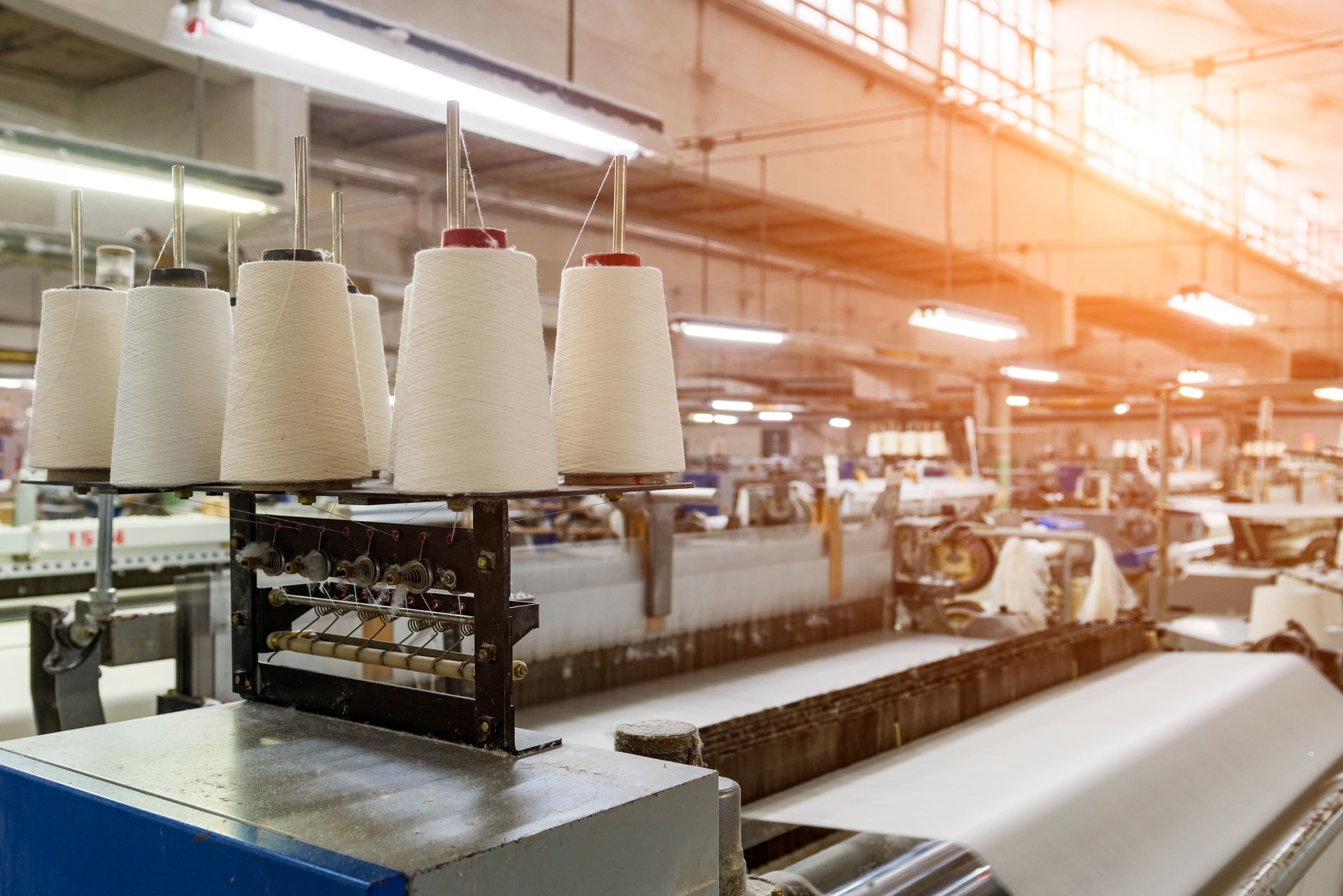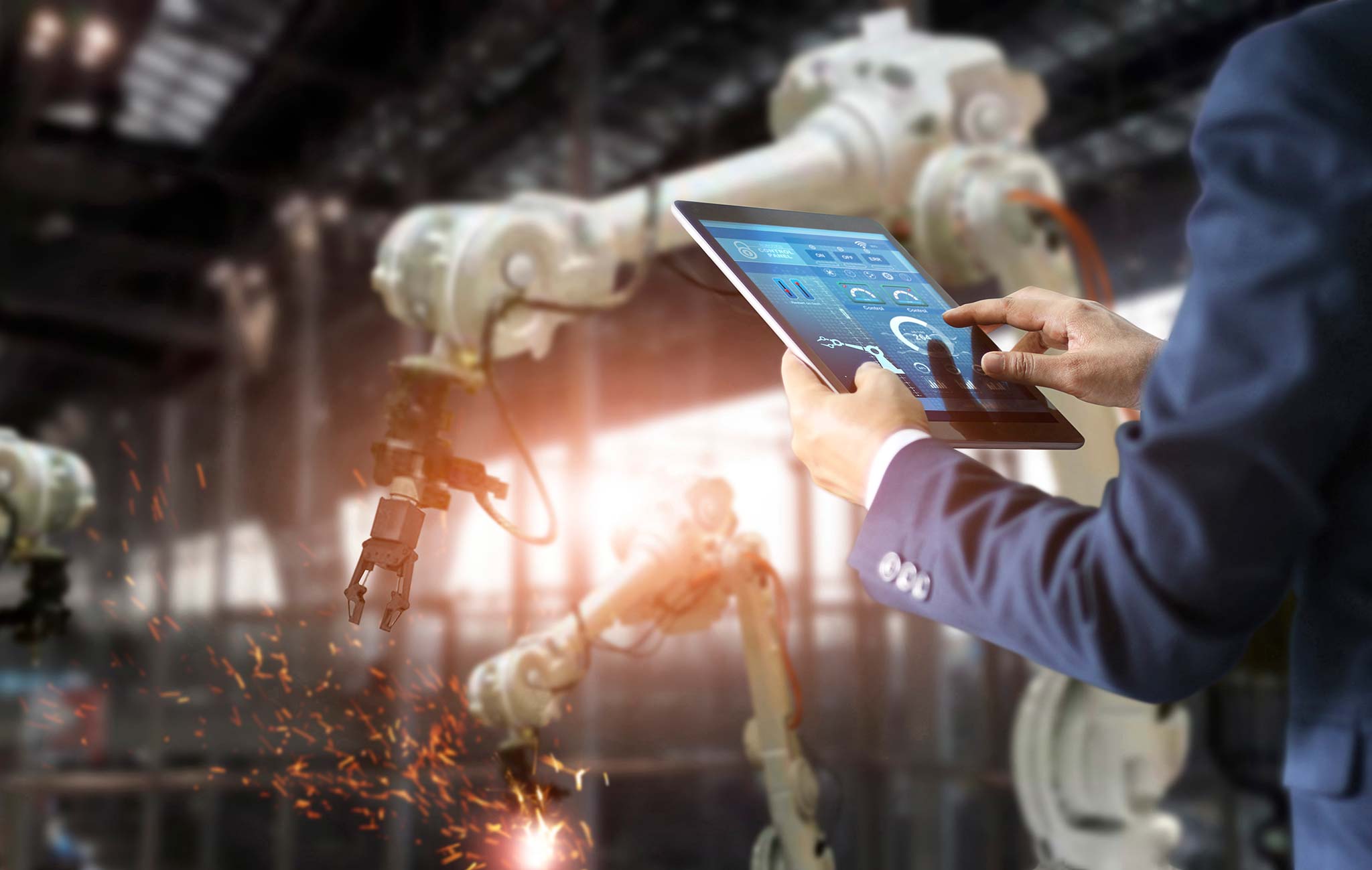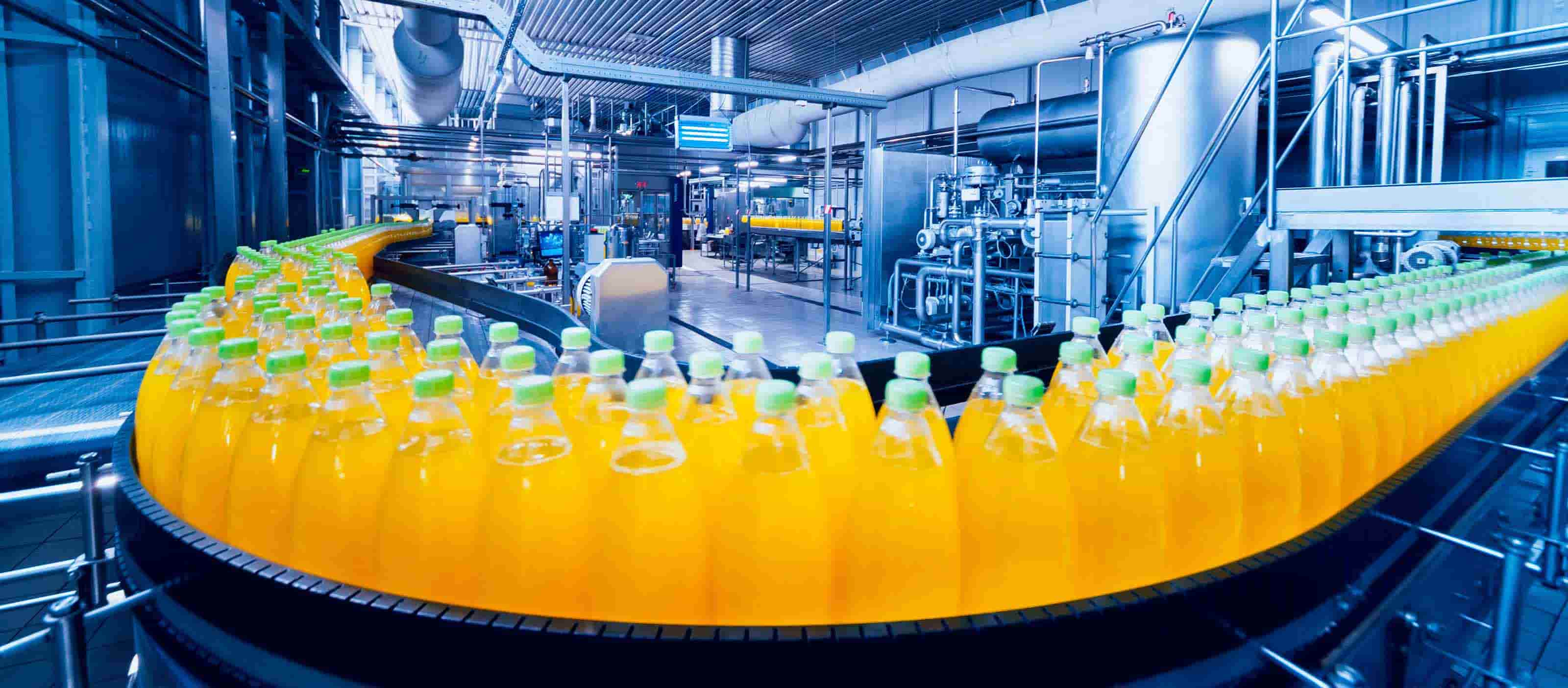Top 10 Best Manufacturing Companies in Europe 2023
Top 10 Best Manufacturing Companies in Europe 2023

Manufacturing companies play a crucial role in the economy of a country. Here are some of the key reasons why manufacturing companies are important:
- Job creation: Manufacturing companies employ a large number of people in a variety of roles, including production, engineering, design, logistics, and administration. These jobs often provide stable employment with good benefits and opportunities for advancement.
- Economic growth: Manufacturing companies contribute to the overall economic growth of a country by producing goods and services that are sold domestically and internationally. They also support other industries, such as transportation and logistics, that are essential for the movement of goods.

- Innovation: Manufacturing companies are at the forefront of technological innovation, developing new products and processes that improve efficiency and productivity. These innovations can lead to new industries and job opportunities, as well as improve the overall quality of life for people.
- Global competitiveness: Manufacturing companies are essential for maintaining a country’s competitiveness in the global economy. They produce goods that are exported to other countries, bringing in revenue and strengthening a country’s balance of trade.
- Supply chain management: Manufacturing companies are responsible for managing complex supply chains, which involve the sourcing of raw materials, transportation, and logistics. Effective supply chain management is essential for ensuring that products are delivered on time and at a reasonable cost.
Overall, manufacturing companies are an important component of any economy, contributing to job creation, economic growth, technological innovation, global competitiveness, and effective supply chain management. :max_bytes(150000):strip_icc()/GettyImages-482181887-8265fbe527904c04a42a95d94485676e.jpg)
Here are the top 10 best manufacturing companies in Europe. Here’s a brief overview of each company:
- Siemens AG: Headquartered in Germany, Siemens is a global company that specializes in electronics, power generation, and transportation. With over 400,000 employees worldwide, it is one of the largest manufacturing companies in Europe.Siemens AG is a multinational conglomerate that has been a leader in innovation and technology for over 170 years. Based in Munich, Germany, the company operates in more than 200 countries and has a workforce of over 300,000 employees. Siemens specializes in producing a range of products and solutions in various industries, including energy, healthcare, transportation, and automation.

In the energy sector, Siemens offers solutions for power generation, transmission, and distribution. The company provides a range of products such as gas turbines, steam turbines, and generators, as well as electrical equipment for power grids. Siemens also provides solutions for renewable energy, including wind and solar power.
Siemens also provides building technologies solutions such as building automation, fire safety, and security. The company’s products include HVAC systems, building management systems, and security systems. Siemens also provides solutions for smart cities, including infrastructure for electric vehicle charging and intelligent traffic systems.
In the healthcare sector, Siemens provides solutions for medical imaging, laboratory diagnostics, and clinical IT. The company’s products include X-ray machines, MRI machines, and ultrasound machines, as well as diagnostic tests and clinical information systems.
Siemens provides mobility solutions for rail transport, including high-speed trains, locomotives, and signaling systems. The company’s products also include solutions for electric and autonomous vehicles, including charging infrastructure and software for autonomous driving.
Siemens is committed to sustainability and has implemented a range of initiatives to reduce its environmental impact. The company has set ambitious targets to reduce its carbon footprint, increase the use of renewable energy, and improve the sustainability of its supply chain.
Siemens has invested heavily in research and development to develop new technologies and solutions that improve the sustainability of its products and services. One of the company’s key strengths is its focus on digitalization and the Internet of Things (IoT). Siemens uses digital technologies and IoT to improve the efficiency of its products and services and to provide new, innovative solutions to its customers.
- Volkswagen AG: Based in Germany, Volkswagen is one of the world’s leading automotive companies, with a range of brands that includes Volkswagen, Audi, Porsche, and Bentley. It is known for its innovative and sustainable approach to manufacturing.
- Nestle SA: Nestle is a Swiss company that specializes in food and beverage production. With a history dating back to 1866, it is one of the oldest and most established companies in Europe, and its products are sold in over 190 countries around the world.
- Airbus Group SE: Airbus is a multinational aerospace company based in France, with a primary focus on aircraft production. It is the largest aircraft manufacturer in Europe and the second-largest in the world after Boeing.Airbus Group SE is a European multinational aerospace corporation that produces commercial and military aircraft, as well as helicopters, satellites, and other space-related products. The company was founded in 2000 and is headquartered in Leiden, the Netherlands, with major facilities in France, Germany, Spain, and the United Kingdom. It is the largest aircraft manufacturer in Europe and the second-largest in the world after Boeing.
Airbus is known for its innovative designs and advanced technology, and its products are used by airlines, governments, and militaries around the world. The company’s commercial aircraft portfolio includes the A320, A330, A350, and A380 families of aircraft, which are known for their efficiency, comfort, and reliability. The A320 family, in particular, has become one of the most popular aircraft in the world, with over 9,000 units sold to date.

In addition to its commercial aircraft business, Airbus also produces military aircraft and helicopters under the Airbus Defence and Space brand. Its military aircraft portfolio includes the A400M military transport aircraft, which is used by several European nations, as well as the Eurofighter Typhoon fighter jet, which is used by several NATO countries. Airbus also produces helicopters under the Airbus Helicopters brand, including the popular H135 and H145 models.
Airbus has made significant investments in electric and hybrid aircraft technology, as well as autonomous flight systems. In 2020, the company unveiled three concepts for hydrogen-powered commercial aircraft, which it believes could be in service by 2035. These aircraft are designed to be emissions-free and to significantly reduce the environmental impact of air travel.
The company is committed to sustainability and reducing its environmental impact. In 2020, it launched its “Mission Zero” initiative, with the goal of achieving zero-emission flight by 2035. The initiative includes a range of measures, such as investing in sustainable aviation fuel, reducing waste and water usage, and increasing the use of renewable energy.
In conclusion, Airbus Group SE is a global leader in the aerospace industry, known for its innovative designs, advanced technology, and commitment to sustainability. Its products are used by airlines, governments, and militaries around the world, and it is at the forefront of developing new and more sustainable aircraft technologies.
- Royal Dutch Shell PLC: Shell is a British-Dutch multinational oil and gas company that operates in over 70 countries around the world. It is one of the largest energy companies in Europe, with a strong focus on sustainability and renewable energy.
- BASF SE: Headquartered in Germany, BASF is the largest chemical company in the world. Its products range from chemicals and plastics to coatings and agricultural products, and it operates in more than 80 countries around the world.BASF SE is a German multinational chemical company that is the largest chemical producer in the world. The company was founded in 1865 and is headquartered in Ludwigshafen, Germany. BASF operates in a range of industries, including chemicals, plastics, performance products, agricultural solutions, and oil and gas.

BASF produces a range of chemical products, including basic chemicals, intermediates, and specialties. The company’s products are used in a variety of industries, including automotive, construction, and pharmaceuticals. BASF is also a leading producer of plastics, including polyurethanes, polystyrenes, and engineering plastics.
In the performance products segment, BASF produces a range of products for personal care, nutrition, and pharmaceuticals. The company’s products include vitamins, omega-3 fatty acids, and aroma chemicals.
BASF’s agricultural solutions segment produces crop protection products, seeds, and biological solutions for farmers. The company’s products help farmers to increase crop yields and improve the quality of their crops.
In the oil and gas industry, BASF produces chemicals for use in exploration, production, and refining. The company’s products include catalysts, chemical intermediates, and performance chemicals.
BASF is committed to sustainability and has set ambitious targets to reduce its environmental impact. The company has implemented a range of initiatives to reduce greenhouse gas emissions, improve energy efficiency, and increase the use of renewable energy. BASF has also committed to a responsible use of resources, including water and raw materials.
In addition to its focus on sustainability, BASF is also committed to innovation. The company has a strong focus on research and development and invests heavily in new technologies and solutions. BASF works closely with its customers to develop new products and solutions that meet their specific needs.
BASF has a global presence and operates in more than 80 countries around the world. The company employs over 110,000 people and generated sales of over €59 billion in 2020.
In summary, BASF is a leading chemical company that produces a range of products for various industries. The company is committed to sustainability and innovation and has a global presence with a strong focus on research and development.
- BMW AG: BMW is a German automotive company that specializes in luxury vehicles. It is one of the world’s most recognizable and respected car brands, with a reputation for quality and innovation.BMW AG is a German multinational corporation that produces luxury vehicles and motorcycles. The company was founded in 1916 and is headquartered in Munich, Germany. BMW operates in over 150 countries and has production facilities in Germany, China, the United States, and other countries.
BMW produces a wide range of vehicles, including luxury cars, sports cars, electric vehicles, and motorcycles. The company’s vehicles are known for their high-quality engineering, performance, and design. BMW’s product lineup includes popular models such as the BMW 3 Series, BMW 5 Series, BMW X3, and BMW X5.
In addition to its focus on vehicles, BMW also provides financial and mobility services. The company’s financial services division provides leasing, financing, and insurance for BMW vehicles. BMW’s mobility services division includes car-sharing services, parking services, and ride-hailing services.
BMW is committed to sustainability and has set ambitious targets to reduce its environmental impact. The company has implemented a range of initiatives to reduce greenhouse gas emissions, increase energy efficiency, and improve the sustainability of its supply chain. BMW is also investing heavily in electric vehicles and has introduced a range of electric and hybrid vehicles, including the BMW i3 and BMW i8.

BMW has a strong focus on innovation and has a reputation for developing new technologies and features for its vehicles. The company’s innovations include the BMW ConnectedDrive system, which provides drivers with access to a range of features and services, including navigation, entertainment, and vehicle information.
In addition to its focus on innovation and sustainability, BMW has a strong commitment to corporate social responsibility. The company has implemented a range of initiatives to support local communities, promote education and culture, and improve diversity and inclusion.
BMW has a global presence and is one of the world’s leading luxury vehicle manufacturers. The company employs over 120,000 people worldwide and generated revenue of €98.9 billion in 2020.
In summary, BMW is a leading luxury vehicle manufacturer that is committed to sustainability, innovation, and corporate social responsibility. The company produces a range of vehicles and provides financial and mobility services. BMW has a global presence and a reputation for high-quality engineering and design.
- Unilever NV: Unilever is a British-Dutch consumer goods company that produces a wide range of household products, including food, cleaning products, and personal care items. It operates in over 190 countries and is one of the largest companies in Europe.

- TotalEnergies SE: TotalEnergies is a French multinational energy company that operates in the oil and gas industry. It is one of the largest energy companies in Europe and has a strong focus on renewable energy and sustainability.
- Daimler AG: Daimler is a German automotive company that produces luxury vehicles, buses, and trucks. It is known for its innovative designs and advanced technology, and its brands include Mercedes-Benz, Smart, and Freightliner.
 Daimler AG is a German multinational automotive corporation that produces a range of luxury vehicles, buses, and trucks. It was founded in 1926 and is headquartered in Stuttgart, Germany. The company is known for its innovative designs and advanced technology, and its brands include Mercedes-Benz, Smart, and Freightliner.
Daimler AG is a German multinational automotive corporation that produces a range of luxury vehicles, buses, and trucks. It was founded in 1926 and is headquartered in Stuttgart, Germany. The company is known for its innovative designs and advanced technology, and its brands include Mercedes-Benz, Smart, and Freightliner.
Mercedes-Benz is the flagship brand of Daimler AG, and it is known for producing some of the most luxurious and high-performance vehicles in the world. The brand’s history dates back to 1886 when Karl Benz invented the first gasoline-powered automobile. Over the years, Mercedes-Benz has developed a reputation for quality, reliability, and innovation, and it has won numerous awards for its engineering and design.
In addition to Mercedes-Benz, Daimler AG also produces the Smart brand of microcars. Smart vehicles are designed for urban environments and are known for their compact size and fuel efficiency. They are popular in cities around the world, where they are often used for short commutes and city driving.
Daimler AG also produces buses and trucks under the Freightliner brand. Freightliner is one of the largest manufacturers of commercial vehicles in the world, and its products are used in a wide range of industries, from construction and logistics to public transportation and emergency services. Freightliner is known for its durability and reliability, and its vehicles are designed to withstand the toughest conditions.
In recent years, Daimler AG has also made significant investments in electric and autonomous vehicle technology. The company has launched a number of electric and hybrid vehicles under the Mercedes-Benz and Smart brands, and it has also developed advanced driver assistance systems and autonomous driving technology. In 2019, Daimler AG and BMW Group announced a partnership to develop autonomous driving technology, with the goal of launching fully automated driving on highways by 2024.
These are just a few of the many manufacturing companies that operate in Europe, but they represent some of the most successful and influential companies in the region.




